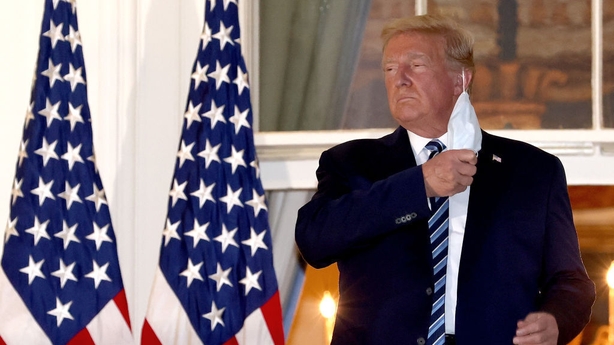"Things were better four years ago."
It was a common refrain from voters across the US in the run up to election day and it was a feeling that was no doubt a factor in Donald Trump's victory.
For many undecided Americans, it was nostalgia and a longing for the way things were that helped them make up their minds.
Four years ago food in US supermarkets was cheaper.
Four years ago gasoline at the service station was cheaper.
Four years ago there were fewer illegal immigrants crossing the southern border.
Four years ago there were fewer international conflicts.
Four years ago Mr Trump was president, but how much impact he actually had on those other factors is questionable.
The post-Covid economic bounce and geopolitical instability led to sharp spikes in inflation around the world.
Would things have been any different if Mr Trump had been in the White House?
Would Russia not have invaded Ukraine?
Would the current conflict in the Middle East not have escalated?
Would the infamous Trump border wall have reduced illegal immigration numbers?
We will never know the answers to these questions for sure, but they are questions nonetheless that were on the minds of Americans as they cast their ballots.
Read more:
Live updates: Harris to deliver concession speech after defeat
Key takeaways from the US presidential election
Why Ireland should be worried about Trump 2.0
According to exit polls, 45% of voters said they were financially worse off now than they were four years ago.
That is the highest rate of dissatisfaction for many years.
Just one-in-four voters said they are better off now than they were four years ago.
Were things really that much better in the US four years ago?
I lived there during that time, covering the Trump presidency as RTÉ's Washington Correspondent.
When I moved to Washington DC, I was struck by how expensive it was to buy groceries and to dine out in restaurants, and from what friends and family in the US have told me, it is now far worse.
But I do not just remember food prices, I also remember the chaos that unfolded at the Capitol Building on 6 January when a mob of Trump supporters tried to overthrow democracy.

I remember an unpredictable and volatile president who would use social media to announce major policy decisions and to fire senior members of his administration.
I remember the rhetoric, the lies and the suggestion that the ingestion of disinfectant might cure Covid.
I remember the rows over mask wearing and business closures, and the threats against those who were protesting on the streets.
I remember the embracing of traditional foes and the severing of traditional alliances.
I remember the controversies, and the angry exchanges with journalists and political opponents.
Voters remember these things too, or perhaps have chosen to forget them, in the hope of better economic times.
Viewing the last presidency through rose-tinted glasses has brought about a red-tinted electoral map and another four years of Mr Trump.







